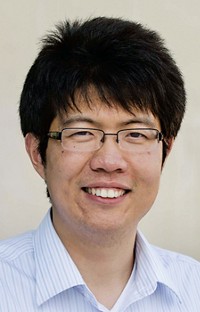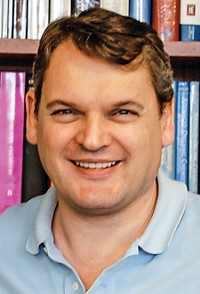Advertisement
Grab your lab coat. Let's get started
Welcome!
Welcome!
Create an account below to get 6 C&EN articles per month, receive newsletters and more - all free.
It seems this is your first time logging in online. Please enter the following information to continue.
As an ACS member you automatically get access to this site. All we need is few more details to create your reading experience.
Not you? Sign in with a different account.
Not you? Sign in with a different account.
ERROR 1
ERROR 1
ERROR 2
ERROR 2
ERROR 2
ERROR 2
ERROR 2
Password and Confirm password must match.
If you have an ACS member number, please enter it here so we can link this account to your membership. (optional)
ERROR 2
ACS values your privacy. By submitting your information, you are gaining access to C&EN and subscribing to our weekly newsletter. We use the information you provide to make your reading experience better, and we will never sell your data to third party members.
People
Elias J. Corey Award for Outstanding Original Contribution in Organic Synthesis by a Young Investigator
by Michael McCoy
January 16, 2012
| A version of this story appeared in
Volume 90, Issue 3
Sponsored by the Pfizer Endowment Fund
For Jeffrey S. Johnson, the end result of a chemical synthesis project is less important than what he and his students learn along the way.
Johnson, 40, is a chemistry professor at the University of North Carolina, Chapel Hill, who studies new organic transformations and their application in the synthesis of biologically important natural products. He joined the UNC faculty in 2001 after earning a Ph.D. at Harvard University under David A. Evans and completing a postdoc at the University of California, Berkeley, with Robert G. Bergman.
At UNC, Johnson’s group pursues reactions that achieve multiple structural modifications in a single synthetic operation and that introduce a significant level of stereochemical complexity in a controlled fashion. He tries to do this with starting materials that are both readily accessible and easily transformed into complex products.
Typical of the results of this approach is Johnson’s development of novel catalytic chemistry using acyl silanes. For example, he used silyl glyoxylates in cascade reactions to synthesize complex molecules with dense functionality, including zaragozic acid C, an inhibitor of cholesterol synthesis. Other researchers have prepared the molecule, but Johnson’s synthesis is the shortest and most efficient route, colleagues say.
In selecting targets to pursue, Johnson avoids making molecules simply for the sake of making them. It’s a lesson he learned while studying with Evans at Harvard and that he now imparts to his students at UNC. “We’re trying to answer questions about chemical reactivity using natural products as a context,” he says.
Those who know Johnson, such as Princeton University chemistry professor David W. C. MacMillan, say he relishes taking on large and risky research problems. “His research program focuses upon big-picture ideals that over the last nine years have reshaped the thinking of many practitioners of chemical synthesis,” MacMillan says. “His concepts and strategies are as novel as they are powerful.”
During that time, Johnson has given some thought to where the field of organic synthesis is going and what his role in it should be during the rest of his career. After discovering many unique and interesting structures, Johnson has decided he would like to start adding “What can these things do?” to inquiries about form and function.
Whatever he does, though, Johnson doesn’t want to stop taking risks. “One of the things I like most about my job is when I’m wrong,” he says. Setting ambitious goals for reagent design or reaction design doesn’t always work, he acknowledges, “but sometimes what falls out of that is more interesting than what you were expecting.”
Johnson will present the award address before the ACS Division of Organic Chemistry.






Join the conversation
Contact the reporter
Submit a Letter to the Editor for publication
Engage with us on Twitter